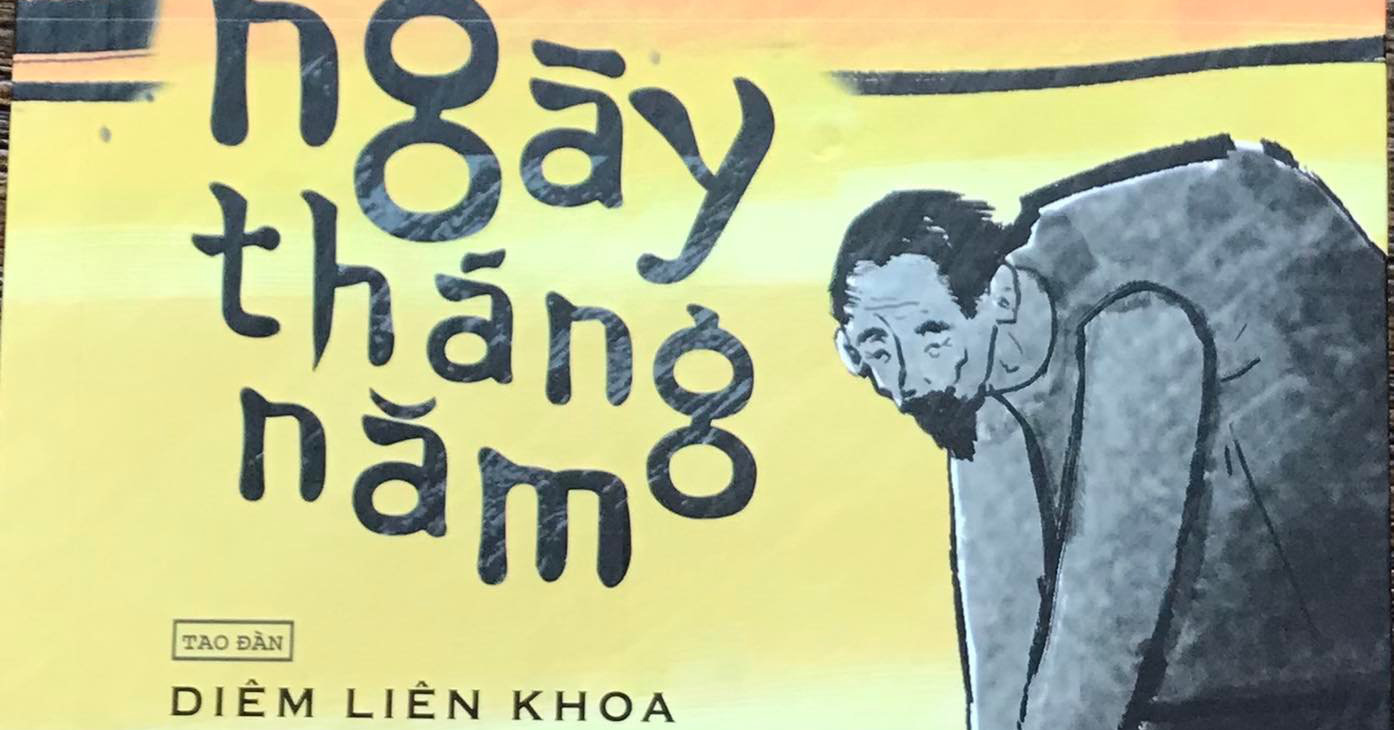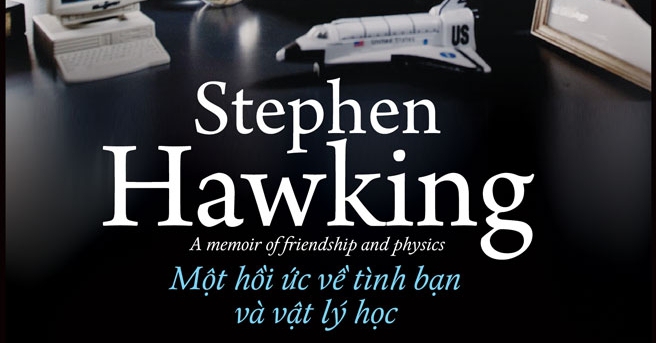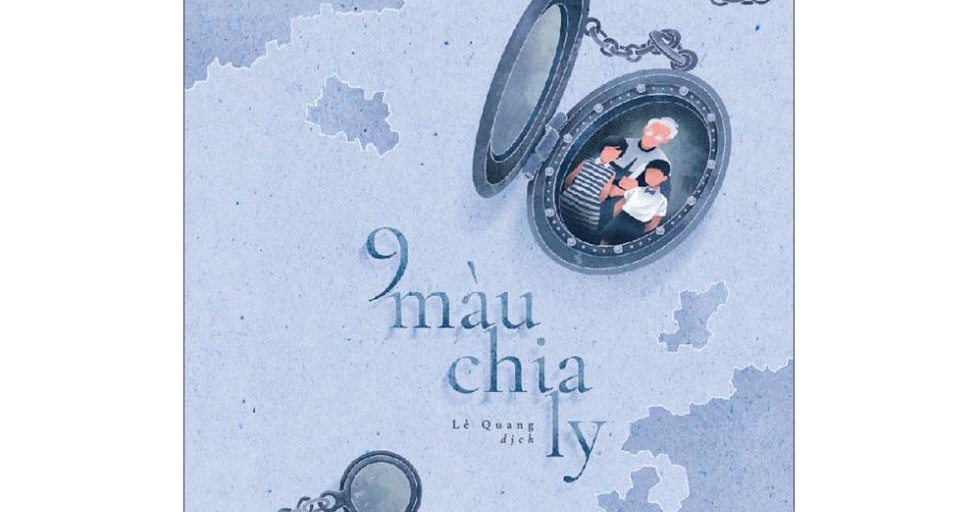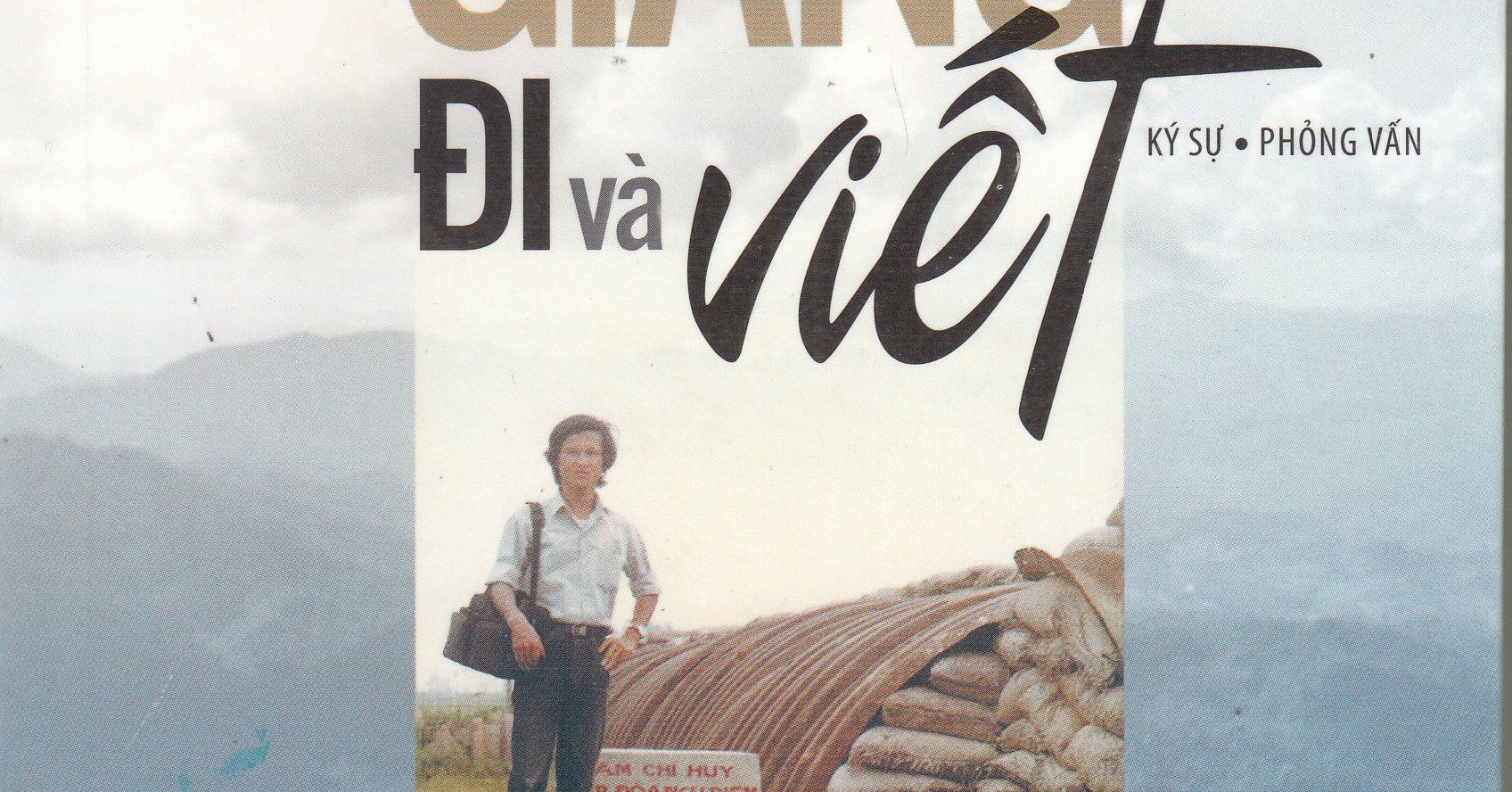Daily life stories of a politician
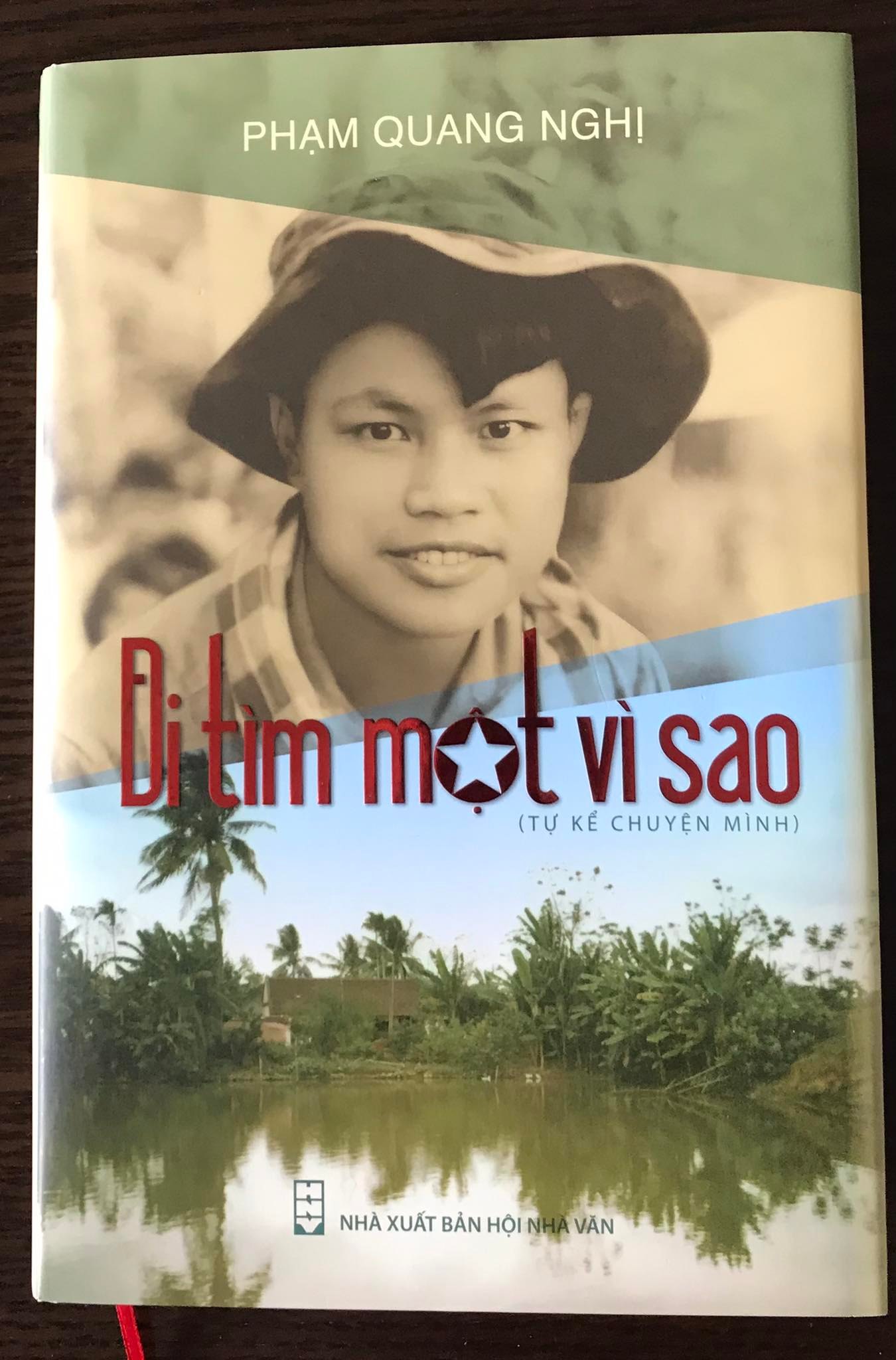
The book “Finding a Star” by Pham Quang Nghi. (Photo: TL)
Under the title of the book, the author adds in parentheses (Self-narrative). Thus, it can be considered as an autobiography. Autobiography of a man named Pham Quang Nghi was born in 1949 in a rural area of Thanh Hoa. After finishing school in the village, he went to Hanoi to study History (Hanoi University) and then went to the battlefield to do propaganda work. In 1975, he in turn went up the political path, joined the Central Committee of the Party, Politburo member, National Assembly member, experienced the positions of Deputy Head of the Central Committee for Ideology and Culture, Secretary of the Provincial Party Committee. Ha Nam, Minister of Culture and Information, Secretary of the Hanoi Party Committee. Now retired he wrote this book to “try to tell very ordinary stories of my life, private memories, from days far away, only now.“.
FIND A WHY
Author: Pham Quang Nghi
Writers Association Publishing House, 2022
Number of pages: 650 (size 16x24cm)
Quantity: 930
Selling price: 300,000 VND
Those distant days are from childhood in the village when the boy Nghi and his friends looked up at the sky at night and counted the stars. Then the boy wondered in his childhood emotions which star in the sky was the main star, his life’s destiny. This little boy did not know, until now the old man is a boy every day can not know. But under that ruling star a man has lived his life according to a destiny arranged by self-righteousness.
Therefore, student Pham Quang Nghi, who had not completed his university studies, volunteered to go to the South and join the militia and political party to support the battlefield in the midst of fierce war days. The young man in his early twenties crossed Truong Son, went through the trials of fire and illness to reach the South, went down to the suburbs to fight and work with his compatriots, and come back to life when the war ends. The first two parts of the book – “Growing up on the Ma River” about childhood and “Hello mother and son to be human” about the war – are interwoven between recollections, diaries, notes, documents. has shown the reader the path of growth and maturity of the author. People better understand the personal life of a person that often when becoming a politician, a leader is often hidden or hidden.
Pham Quang Nghi’s years on the battlefield appear on the pages of an honest and vivid autobiography, is an cadre who dares to fight, plays with bombs and even daily activities in the South, but also a Young people with poetic souls are easily moved by the manifestations of life, know how to record in their diary daily events. It was thanks to that hard work that Pham Quang Nghi later released the book “That place is the battlefield” (2019) from the diary pages and the poetry book “Nostalgia for the suburbs” (2019) from the pages of the book. hand. In this autobiography, the notes from the past are quoted and intertwined with the narrative thread now, allowing readers to live with the author the unforgettable years of his life.
That is to say, readers who have read the first two parts of the book will be eagerly waiting for the latter part when Pham Quang Nghi in turn holds high positions in the political system and the government apparatus. He was assigned to be the Secretary of the Ha Nam Provincial Party Committee (1997) when the province had just split from Ha Nam Ninh province and was mired in a tense internal infighting. It was a great challenge for him, a man who was only used to doing cultural thought work, had never experienced great management and leadership. But he accepted the party assignment and committed.
The four-year period (1997 – 2001) as head of this province was written quite carefully, in detail, with specific people’s jobs. This is very necessary and important in an autobiography. He overcame the “49-53 term” of his life by stabilizing the socio-political situation in Ha Nam, helping the province overcome the internal crisis to create momentum for development. There is a detail that proves the commitment and political bravery of Provincial Party Secretary Pham Quang Nghi. That is, on a New Year’s occasion, after visiting the fields with the provincial leadership team and visiting some people, he decided to visit and congratulate the former temporary secretary of the Ha Nam Provincial Party Committee recently. expelled from the party. People were afraid and dissuaded him, but he still decided to go. And that unexpected Tet greeting went smoothly. This experience has shown him right”believes in the ability of people to realize what is right and for good“. Until leaving, he considered Ha Nam as his second homeland, after Thanh Hoa. And Ha Nam also considered him as a provincial person, as evidenced by the fact that he chose Ha Nam as the place to run for election. Member of the 11th National Assembly and was elected with the highest number of votes.
The Henan Period is the second of the five chapters in the Third part of the book. This part is called “Things of the Past” with the number of pages accounting for nearly half of the book about Pham Quang Nghi’s nearly forty years of life after 1975. Returning to Ha Nam for 4 years, returning to the Ministry of Culture and Information for 5 years and 1 day, returning to Hanoi for 10 years. Compared with the chapter on the province, the chapter on the Ministry and the capital the author mainly tells the results of a number of things he has done, does not go into the process of any one thing, although in fact there are complicated and dramatic things he has to do. face that, if told about the top, can say a lot.
In stories at the Ministry of Culture and Information, Mr. Nghi recounted the story of the Dien Bien Phu victory monument on the occasion of the 50th anniversary of this great historical event. He only skimmed the cluttered things around, but he mentioned a character, Vo Thi Hong, director of the Central Fine Arts Company, the unit responsible for constructing the monument. Mr. Nghi recalled that Ms. Hong with humane feelings as if to “vindicate” her was prosecuted and detained in the case of negative trial during the construction of this monument. He wrote: “Vo Thi Hong’s contributions in the process of building the “Dien Bien Phu Victory” monument deserve recognition, praise and praise.The author’s attitude to look back on the past is so precious. Unfortunately, Mr. Nghi did not tell all about this case because as he said: “As the person who directly followed the construction of the monument “Victory of Dien Bien Phu” from the beginning to the end, I understood the right, wrong and the cause of the incident..” (p. 522) Autobiography is a personal story and an individual has the authority to speak about the past stories he has participated and participated in like author Pham Quang Nghi, readers have the right to demand and expect waiting to know more, more deeply about real events.
This regret is more evident when reading what he told during his ten years as Secretary of the Hanoi Party Committee (2006 – 2015). In those ten years, there were two major events: the expansion of the capital, the merger of Ha Tay into Hanoi (2008), and the great 1000th anniversary of Thang Long – Hanoi (2010). The author only told the beginning of the work, which mentioned the Hanoi Museum as a mark. And what readers want to know is how the merger of Ha Tay took place, how complicated, how complicated the millennium anniversary was, but little left behind, the author skimmed through. Is it because the author “tells his own story” so he has to choose what to say and what not to say as well as to consider what is said and should be said at each time. For example, a “memory” between me and Mr. Nghi. In 2011 at the Congress of the Hanoi Union of Literature and Arts (term XI) I read a lecture on the responsibility of the capital’s writers and artists to the situation of the sea and islands of the country.
Secretary of the City Party Committee Pham Quang Nghi then spoke to the congress, after reading the ready-made article, he blabbered for more than ten minutes to rephrase my presentation. This detail he probably did not remember and if he did, he would not include it in the book, although such details are found in the autobiography, the reader will surely like it. But if I were to write an autobiography about my time in the Society, I would repeat it. Autobiography!
Closing the book of his life, author Pham Quang Nghi rewrote what he said at the beginning of the book: “I want to say thank you to life, for the mile-long graces of more than two-thirds of a century with the pages of books that tell stories of everyday life. Tell honestly and maybe clumsy because honestly I don’t want to draw or weave anything more for the past stories..” Readers will feel his confiding through each page of the book. And the important thing is to believe his stories, even though he still wants him to tell more, more detailed, deeper than what he told. From his position, to get from him and people like him, know better, more truthfully the historical facts for which you take a large part of the responsibility to propose and implement. Politicians are told honestly and objectively from a personal perspective in autobiography, memoirs are always expected and welcomed by the public.
“Looking for a star” in the sky from childhood to old age cannot be seen, but in life everyone can see.
See you next time with other new books!
Hanoi, June 7, 2022
at Blogtuan.info – Source: danviet.vn – Read the original article here
